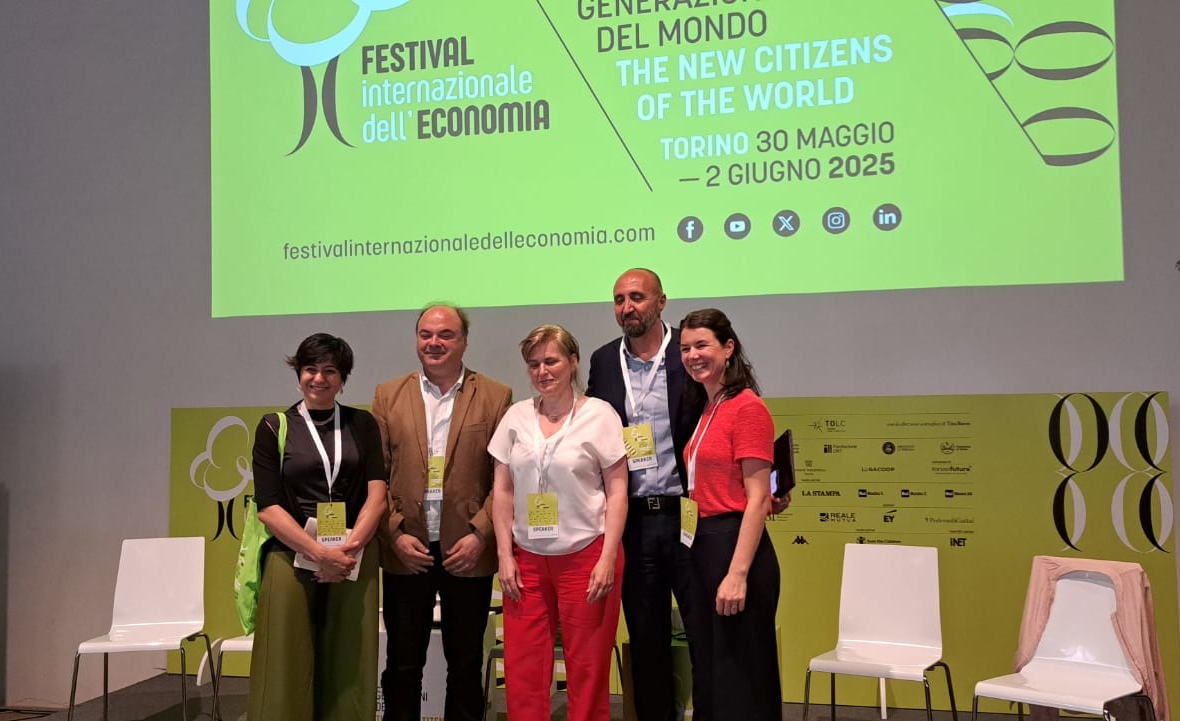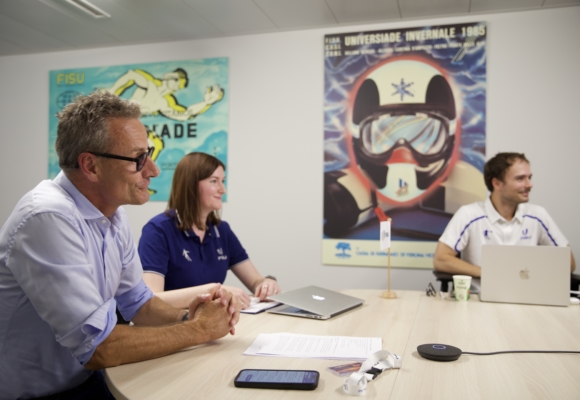The second edition of the “Festival Internazionale dell’Economia”, held in Turin from 30 May to 2 June 2025, brought together global experts to address the pressing challenges facing society and the economy.
With over 100 free events, including keynotes, roundtables, and workshops, and welcoming renowned speakers such as Nobel laureates Paul Krugman, Daron Acemoglu, and Michael Spence, the festival turned historic venues like Teatro Carignano and Collegio Carlo Alberto into vibrant hubs of interdisciplinary exchange.
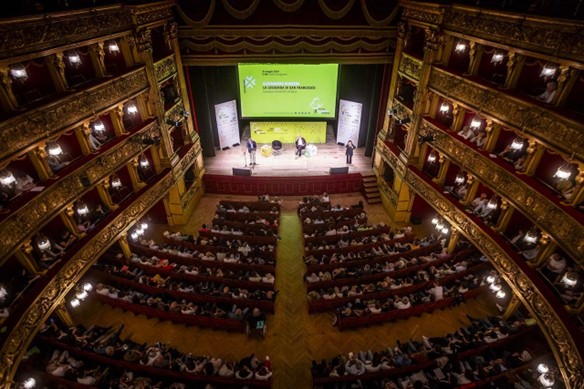
Among the most impactful sessions was “Alternative Universities and Healthy Campus: Student Wellbeing Within and Beyond Campus”, which explored how institutions are reshaping higher education to prioritise student health, inclusion, and success. The session featured leading voices from research, university leadership, and global programmes, and was expertly moderated by Anna D’Ambrosio of Politecnico di Torino.
Antje Jantsch (IAMO – Leibniz Institute): “Students Are Not OK”
Antje Jantsch, from the Leibniz Institute for Agricultural Development in Transition Economies (IAMO), delivered a compelling, data-driven presentation titled “Students Are Not OK.” Drawing from data across 25 European countries, she presented alarming figures such as “58% of students report low well-being; marked increases in anxiety, depression, and suicidal ideation, and a deep-rooted challenges linked to financial stress, social pressure, and institutional dynamics.
Jantsch also highlighted structural issues within academia, including power imbalances, lack of support systems, and the marginalization of vulnerable voices.
She emphasised the need for a structured, systemic response, based on measuring what matters by aligning with institutional values; co-creating evidence-based, bottom-up interventions with students, and securing dedicated budgets for mental health and well-being.
Her message was clear: it’s time to shift from reactive policies to proactive strategies that place student well-being at the core of educational success.
Diego Nargiso (Politecnico di Torino): Sport as a Strategic Priority
Diego Nargiso, Senior Sport Manager and Head of Sport at Politecnico di Torino, and a former ATP tennis champion and Olympic athlete (Seoul 1988), shared his pioneering vision of transforming sport into a strategic pillar of campus life.
He highlighted “Move Together, Healthy Together”, an innovative project soon to be launched at POLITO. The initiative will use an algorithm to match students with sports activities based on their physical and behavioural profiles. By rewarding sustained participation, the project aims to boost resilience, mental balance, and well-being.
“We want students to feel guided, supported, and motivated, to never give up and to discover a sport family that fits them,” he said.
Nargiso reinforced that sport is not merely extracurricular — it’s central to institutional identity and student development. Under his leadership, POLITO has become a certified institution within the FISU Healthy Campus programme.
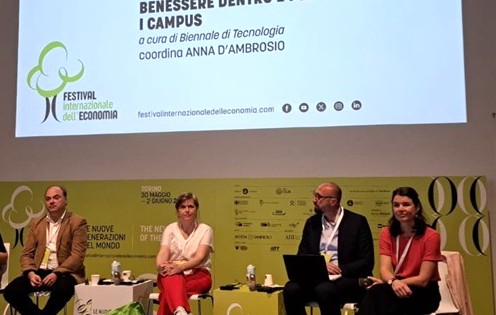
Katia Levecque (University of Gent): Rethinking Academic Workplaces – Wellbeing as a Shared Responsibility
Katia Levecque, from the University of Gent, brought a compelling academic perspective to the conversation. Her research focuses on occupational wellbeing and mental health in academia, and their impact on performance and careers of early-career researchers and PhD holders.
She addressed the psychosocial stressors intertwined in academic work and academic work organisation, including job insecurity, work load and job autonomy, leadership challenges, and issues of diversity and inclusion. Her interdisciplinary approach, provided robust insights into the systemic roots of mental health issues in higher education. Currently, her research taps into the relative impact of systemic versus individual roots of occupational well-being, health and performance.
She advocates for a paradigm shift in policy interventions, finding fertile ground for healthy workplaces by putting both performance and well-being at the heart the university’s mission, making it a joint and daily responsibility of all. Transforming to healthy universities asks for a sound scientific evidence-base, the willingness and courage to take action, and the embracement of dialogue and participation in building connection and community.
Fernando Parente (FISU): Healthy Campus – A Global Movement
Fernando Parente, Director of Development and Healthy Campus at FISU, closed the session with a global perspective on health and sustainability in higher education.
He presented the FISU Healthy Campus Programme, now involving 186 universities across 45 countries, structured around 100 criteria in 7 key domains — from mental health and physical activity to sustainability and risk prevention.
Parente introduced the new 2025 Healthy Campus Best Practices Book, showcasing over 250 practical initiatives from universities worldwide, reinforcing the programme’s reach and adaptability.
He highlighted some key benefits of participation, as “advancing the UN Sustainable Development Goals in a structured manner, sharing and learning from global best practices, strengthening institutional cohesion and public image, reducing student´s dropout rates, and enhancing student engagement and satisfaction.
“Healthy Campus is more than a programme, it’s a global movement to transform how we live, learn, and lead within our academic communities,” he concluded.

A shared vision for change
The session successfully spotlighted the urgency of reimagining university environments to better support student health and flourishing. It also celebrated innovative solutions, from grassroots policy design and algorithm-driven sports engagement to systemic workplace reforms.
Anna D’Ambrosio provided thoughtful moderation that allowed each speaker’s expertise to shine while fostering a collaborative and reflective space for dialogue.
As the festival drew to a close, one message stood out: student wellbeing is not a side issue, it is central to shaping a better future for higher education worldwide.
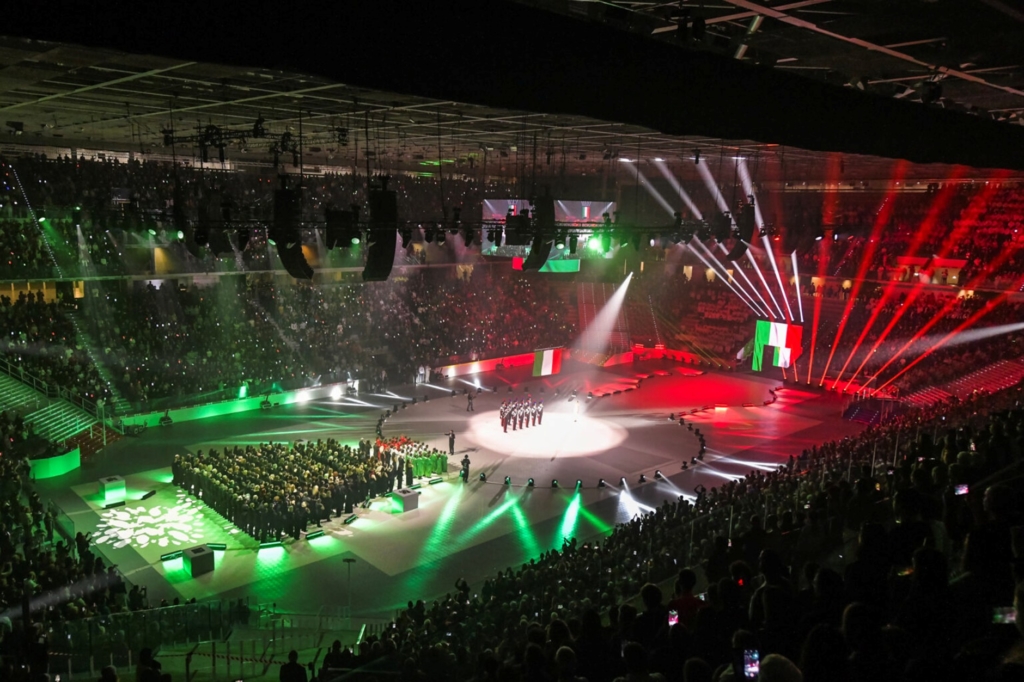
Turin is a special place for FISU since the foundation in 1949 and having recently hosted the FISU World University Games Winter this past January. The city is increasingly becoming a campus of wel-being, with both the University of Turin and Politecnico di Torino fully committed to, and certified under, the FISU Healthy Campus programme.
